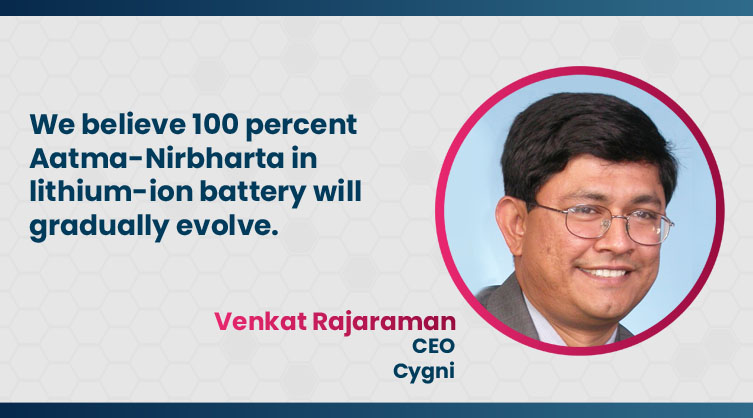The energy storage market to be around 80 gigawatt-hours by 2030
By Admin November 19, 2022 1:58 pm IST
By Admin November 19, 2022 1:58 pm IST

Cygni offers the most effective rooftop solar solution for residential and commercial workplaces, warehouses, apartments, gas stations, rural banks, etc., Powered by a lithium-ion battery and solar panel.
What are the current market trends influencing the need for battery manufacturing in India?
There are two opportunities in battery manufacturing: one is for electric vehicles (EVs), and the other is for energy storage systems (ESS). Each of them stands alone as a significant portion. The Central FAME-II policy, which provides incentives to the producers of electric vehicles, is the primary demand-side driver for EVs. Additionally, various state-level policies are giving additional incentives on top of the central schemes.
Moreover, the government is aiming for scale through its multiple CESL and EESL projects and obligatory emissions reduction targets. On the supply side, it is driven by low market entry barriers as it is effortless for many OEMs to enter EV and battery manufacturing and a sizeable domestic opportunity.
Additionally, there is a very explicit criterion for localisation, which states that localisation must reach 60 percent within five years and 25 percent during the first two years of operation. The ACC-PLI scheme is expected to result in a direct investment of about `45,000 crores for battery storage manufacturing projects and is expected to result in huge savings in the oil import bill of about s200,000 crores. These schemes will drive the battery manufacturing industry.
We use cookies to personalize your experience. By continuing to visit this website you agree to our Terms & Conditions, Privacy Policy and Cookie Policy.